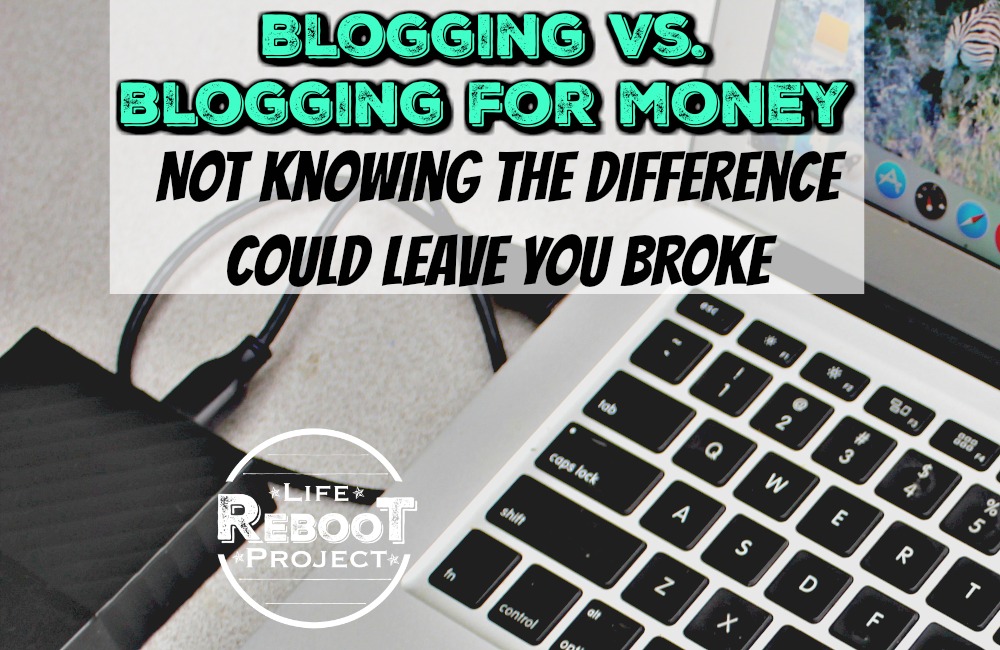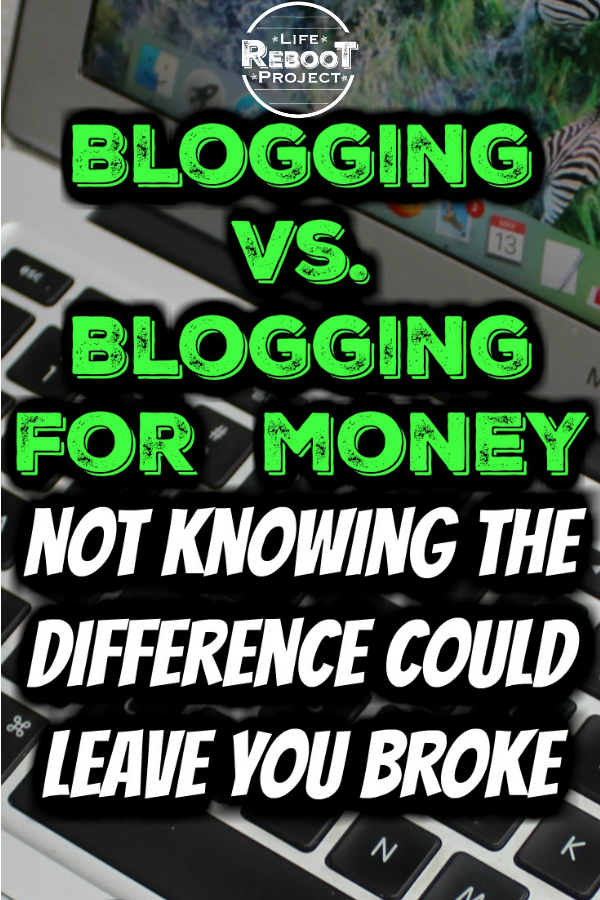
Sensational outlines are everywhere nowadays about bloggers who are making huge money just from blogging. There is a type of mystique about it. People who don’t understand a lot about it throw stones and laugh at the possibility that people making an income. Others try to emulate it without getting an excellent grasp on how it works and end up getting frustrated and quitting.
I got into blogging without any commercial intent. I started a blog in the auto racing niche just to talk about my passion; racecars. After about a year or so into it, I started catching on to the concept that I could earn a little money from my blog. At this point, it was costing me more money than it was making. All I was really after in the beginning was to just have it pay for itself.
But after I figured some things out and got making a little money, I was hooked. I tried a ton of stuff on that first blog. A lot of it didn’t work. I still don’t make a ton of money from that blog, but it is still there and makes me some money every month. I’m very analytical. I will analyze things to death sometimes.
The points I make below are what I found to be the most significant differences between blogging and making money blogging. There is a difference, and the difference is vast.
Blogging for money; self-hosting vs. free hosting
One of the most dramatic differences in my mind is the hosting. I paid for hosting on my blog from the very beginning, but there are a ton of free sources out there where you can get up online and blog at absolutely no cost. If you are blogging to have some fun and get your voice heard, these are fine.
If you have the intent from the very beginning or think you will ever want to make some money, I think hosting a blog on the free platforms is a mistake. You need to be in control of everything surrounding your site. Think of this as the difference between renting an apartment and owning a house. In an apartment, you are very limited in what you can do. The rental or lease agreement binds you.
In a house, just as long as you don’t break any laws or building codes, you can pretty much do what you want. For hosting, I like Bluehost. I’ve been with Inmotion Hosting and Hostgator. I worked on a couple of business websites that were hosted at Go Daddy and Interserver and had problems with them all. The blog you are reading now is hosted by Bluehost and I’ve never had any trouble. The point is to get your blog self-hosted somewhere.
As a side note, it doesn’t make too much of a difference what CMS software you use, but I like WordPress. It’s easy to use, and it is continually being updated. The best part is it’s free to use.
Blogging for money; establishing a topic that is monetizable
Figure out early whether the topic you want to talk about is something you can monetize. There are so many ways you can make money on the internet; there probably aren’t too many that you can’t at least make a little money. The other area of this is whether you would like to make it a full-time living or make a little side money. I suggest doing a little research in your topic area and see what others are doing.
Are they making it through advertising? For advertising to work, you will need a significant amount of traffic to your blog every day. If you are in a niche where there isn’t a ton of traffic, advertising probably won’t work for you. If you are interested in being an affiliate, make sure there are products for you to be an affiliate. Interested in creating your product? What type of thing would your audience be interested in? What would they be willing to pay money for and what would they expect for free? Some people put this step later into the blogging journey, but I would have kind of an idea from the start whether the topic you choose is monetizable.
Blogging for money; take a narrow topic or carefully selected avatar
Selecting a narrow avatar or a particular topic is the best choice to make sure your message hits your reader in the sweet spots. I’ve seen plenty of examples where people talk about home do-it-yourself projects, cooking, and then taking on the blogging niche. But, if you think about it, even though they’re in a well-spread-out niche, they are still targeting the same type of avatar. Their avatar is a mom taking care of a household. These are all very diversified topics, yet the avatar they are talking to is very defined.
There are other topics that this will work in, but the best idea is to start narrow and then diversify as you get a good feel of who is responding to what you write. Feel free to test the waters with a few different topics after your blog is well established. The most significant difference by far between blogging for money and blogging for fun is having a targeted audience within a topic you have researched vs. just writing where your heart takes you.
Blogging for money; Keep track of your keywords
Another huge difference between blogging and blogging for money is knowing your keywords. If you are not familiar with it, keywords are the terms people use to search for things on the internet. The amount of times people type a particular word into the Google search box, the more search volume it has.
If your goal is to make some money blogging, you will need to use money-making keywords in your content or your hashtags (#). These aren’t always the terms people search most on the internet. You have to think past the search volume to see if it is a money-making keyword. Certain keywords will be more profitable than others in every niche. If you are a member of your targeted audience, it should be pretty easy for you to at least identify what would be profitable and not. Just ask yourself, “If I wanted to buy ‘x’, what would I type in?” or “If I wanted help with ‘x’, what would I type in?”
This should be a pretty good start. You will hear people who do a lot of keyword research before writing a blog post. My system is a little easier going. I spend a couple of hours every few months going through keyword searches and writing them in a notebook for me to reference later as I write posts. I use a tool called ubersuggest. It’s a tool by Neil Patel. At least, I think it’s his program; I go to his website to use it. It is simple and gives you a rough idea of the search volume for keywords. There are other people with different methods and different keyword tools, but this system works for me.
Blogging for money; Understanding the principles of copywriting
If you haven’t been around the world of marketing for very long, you might mistake the word copywriting for the concept of copyright. Copyright is something to legally protect a piece of intellectual property or a logo. Copywriting is writing in the form of persuasive selling. If you are venturing down the path of blogging for money, you should at least be familiar with the basics of copywriting.
There is a ton of stuff out there teaching copywriting. All you need to do is to Google copywriting. The place I found to be the best is the Gary Halbert Letter.
I also really think of any of the many books by Joe Sugarman; you might have heard of him. He was the guy from the BluBlocker sunglasses fame back in the eighties. He has written a bunch of excellent books on the subject, but The Adweek Copywriting Handbook is probably his best. He explains the basics of copywriting entertainingly. He is a storyteller, and he weaves examples of his real-life marketing success stories into the fabric of the lesson. I got the opportunity to meet him and listen to him at a conference one time, and he has some incredible stories. Many of which end up in his books.
If you are trying to blog for money, copywriting is one skill I don’t think you can live without. These are just some of the most significant differences to be aware of if you decide to take up blogging and you want to make a little money from it. Just sitting down to write may get you some readers and you might be able to make a couple of bucks, but if you are serious about blogging for money. There are some aspects that you will have to change and be aware of as you go along.
Be safe,
Kevin

